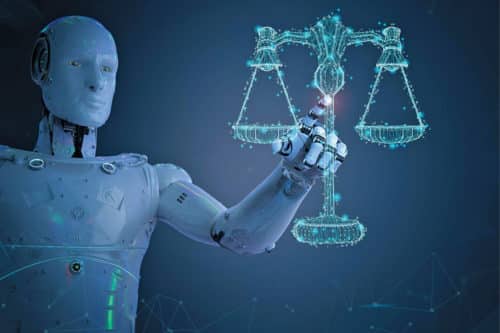With criminals becoming tech-savvy, police and the courts also need to know the latest tools and make use of the latest technologies like cyber policing, artificial intelligence, data analytics, blockchain and cloud computing.
Reducing crime rates and delivering speedy justice to the needy is a challenging task globally. It requires smart policing and effectively dealing with roadblocks in legal proceedings. Although the adoption is slower when compared to other sectors like finance and insurance due to the ethics constraints involved, science and technology are being increasingly leveraged by enterprises to accomplish this mission. This is proved by the success of Global Legal Hackathon 2019 that was organised to develop technical solutions for the industry, in which participation of over 6,000 people across 46 cities in 24 countries was seen.
As criminals become more tech-savvy, police personnel need to know the latest tools and scientific methods to keep up with them. Automating manual activities that are rule-based and repetitive through robotic process automation can save time and manpower.
Investigating and understanding the intricacies of even the most pressing cases has become easier with the aid of CCTV footage, which also serves as valuable evidence in the court, especially in the absence of witnesses. Digitisation of cases ensures full electronic access to past history of all records. Analysing the data from first-hand evidence at the site in real time provides a good overview of cases from the beginning.
Telangana Police is among those taking diverse initiatives since past few years to maintain law and order in the state. For instance, mobile apps like TSCOP, ePetty case, Cop Connect, Facial Recognition System, and e-Challan system launched by the department have played a huge role in data sharing and structuring the system. Another such attempt comes from IIIT Delhi, where a research centre has been built to assist the capital’s police for such purposes as criminals’ identification, cyber policing, traffic management, and combating crimes by using artificial intelligence (AI), biometrics, image processing, Big Data, social media analysis and network forensics.

Technologies like AI, analytics, blockchain, and cloud computing are making their way into the courtrooms, too. AI-powered tools can be used by lawyers for most daily tasks, from reviewing documents and performing legal research rapidly to predicting various outcomes of a case. Businesses can utilise AI to review contracts for partnerships without any bias, and perform background checks before hiring new employees to avoid getting into legal troubles later.
Several companies in countries like the US, Singapore, the UK, Canada and Australia are using technologies to solve issues in this space. Canada-based Kira Systems uses machine learning (ML) for contract analysis. UK’s company Tessian employs AI to secure confidential data and emails for law firms.
In India, researchers from IIT Kharagpur have recently developed an AI-powered method to automate the reading of legal case judgements, case law analysis and enhance legal search across several domains. Deep neural models enable understanding the rhetorical roles of sentences or jargons in a judgement when adequate data is available, and hence aid in organising legal documents.
Blockchain finds application in email encryption, verifying process and securing evidence, like in financial transactions and many other purposes. For example, Legaler’s blockchain and developer tools provide infrastructure to build decentralised applications for legal services. In 2017, Global Legal Blockchain Consortium was formed to drive the standardisation of blockchain technology in the legal sector. It has already surpassed 150-member mark, which includes law firms, software companies, and universities, among others.
According to a 2019 report titled LawTech Adoption Research by tech analysts TechMarketView, the number of lawtech companies has grown over the past few years, but the adoption rate is not that high among legal practitioners. One of the major reasons noted behind this is the partnership model in which spending is done from the partners’ profit pool.
To change this scenario, the US states like North Carolina and Florida have already mandated technology training for CLE (continuing legal education) credits. Pressure from clients for cheaper offerings is also pushing law firms to move to cloud computing and other tech solutions.






